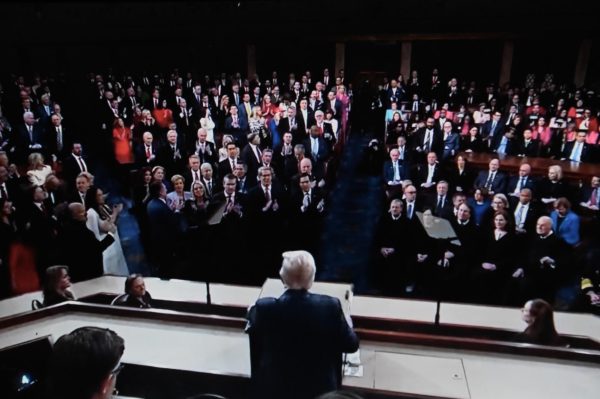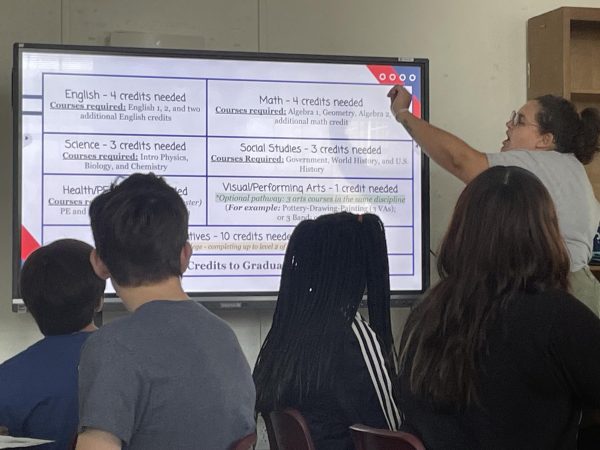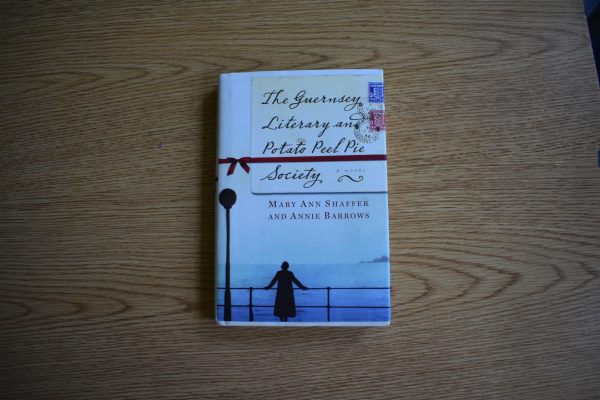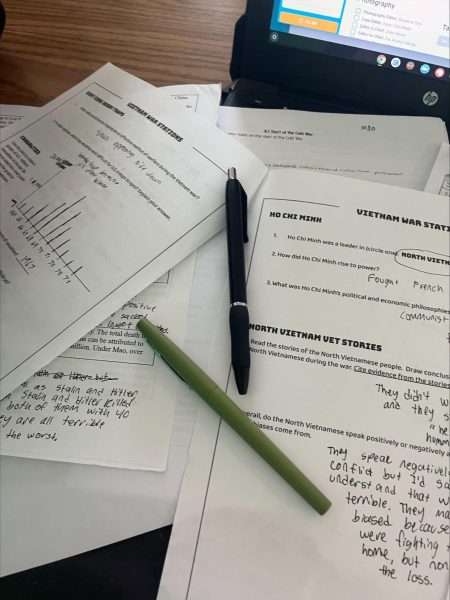A History Teacher’s Perspective on the “Critical Race Theory” Bill
Lafayette teacher, Stevie Lemon’s, bookshelf with textbooks for US History Curriculum.
“Not teaching about these subjects is not teaching American History”
After months of back-and-forth over critical race theory in the US education curriculum, the Texas House of Representatives passed a bill that educators worry could further limit their ability to teach about racism, race, and even current events. The bill (SB3) would prohibit teaching certain concepts about race, start a civics training program for teachers, and largely bar schools from giving credit to students for advocacy work. There are bills very similar that are currently in process in other states including Kentucky.
The bill urges educators to teach only that slavery and racism are “deviations” from the founding principles of the United States. Texas Senate Democrats originally added requirements that schools teach about certain diverse historical figures and concepts into the bill that passed during the regular session. However, Republicans in this session attempted to strike them out.
Among the works to be removed from the standards by SB 3 were Martin Luther King Jr.’s “Letter from a Birmingham Jail” and “I Have a Dream” speech, the U.S. Supreme Court’s decision in Brown v. Board of Education, the Snyder Act of 1924 – which granted citizenship to indigenous people or Native Americans – the Emancipation Proclamation and the Universal Declaration of Human Rights.
The bill also states that, “a teacher may not be compelled to discuss a particular current event or widely debated and currently controversial issue of public policy or social affairs.” When a controversial topic is introduced, a teacher can only foster and facilitate that conversation without bringing in their own political bias, Republican lawmakers have said. Texas Rep. Dan Huberty, clarified that a teacher may not be forced to discuss “currently controversial topics,” but if they do, educators should discuss that topic “objectively and free from political speech.”
Some teachers worry about how vague the language is. “We’ve heard from teachers that are scared to now teach social studies. We’ve heard from teachers that are now saying, ‘I could be sued,” Huberty said. Many critics have voiced concerns that this bill could put a de facto effect on teaching relevant issues of current affairs in the classroom. Most of the pushback comes from teachers and democratic politicians that are involved with the bill (Texas legislators).
The Times got the perspective of a Lafayette history teacher Ms. Lemons. She teaches AP US History, Adv US History and regular US History.
We first started by getting a background on what the Kentucky US History curriculum is. She said, “For Kentucky, our standards are pretty ambiguous in the way of, there are no specific events, people, concepts, that we are required to teach. It’s more overarching big concepts… but I would say that there are big things that all teachers strive to hit on (Slavery, The Constitution, Enlightenment Period etc.)”
When asked what changes she would make to the curriculum, she replied, “I think in Kentucky our curriculum for social studies is pretty good. I think it’s better now [after the 2019 revisions] for teachers because it’s not a set list of ‘you have to teach this and not teach [that]’. It’s more open. However, with the bill that’s currently up to be voted on [in Texas], I think that it would create an issue for Kentucky teachers because we wouldn’t be able to teach about oppressed groups in the US in the same way that we’re able to now.”
As for her opinion on the bill itself, she commented, “I think it is a disservice to American school children because I think that it is leaving out major parts of American history that are integral to understanding current events.”
When asked how would this bill personally impact her classroom and the way that she teaches she answered, “It would impact it majorly because I spend quite a bit of time talking about oppressed groups and the disadvantage that the government has done to them… so for me personally if there was a penalty attached to that, I would definitely fall under that category. I think that I would find ways to still incorporate the history without penalty, but of course that would take a lot more effort on my part.”
Ms. Lemons wrapped up the interview by saying, “My big thing is, not teaching about these subjects is not teaching American History. You have to teach about the oppressed groups, you have to teach about slavery and the consquences of slavery to really understand where we are currently as a nation, so if this bill passed, I personally think that I would still find ways to incorporate it, even with the threat of punishment.”
Many teachers are outraged by the bill and are voicing their concerns to the state legislature. This bill puts their current way of teaching in jeopardy, but more than that; it’s changing American students’ ability to learn about hard topics that need to be taught. The critical race theory bill for Kentucky legislature is currently prefiled for the 2022 session. If the bill will pass is anyone’s guess. Only time will tell.
Front view of the Kentucky State Legislature Building (Photo cred: kentuckytourism.com)
https://capitol.texas.gov/tlodocs/871/billtext/html/SB00003I.htm

Malik Mulder is a junior and is currently enrolled in the pre-engineering program at Lafayette. He
enjoys writing informational articles and taking...











